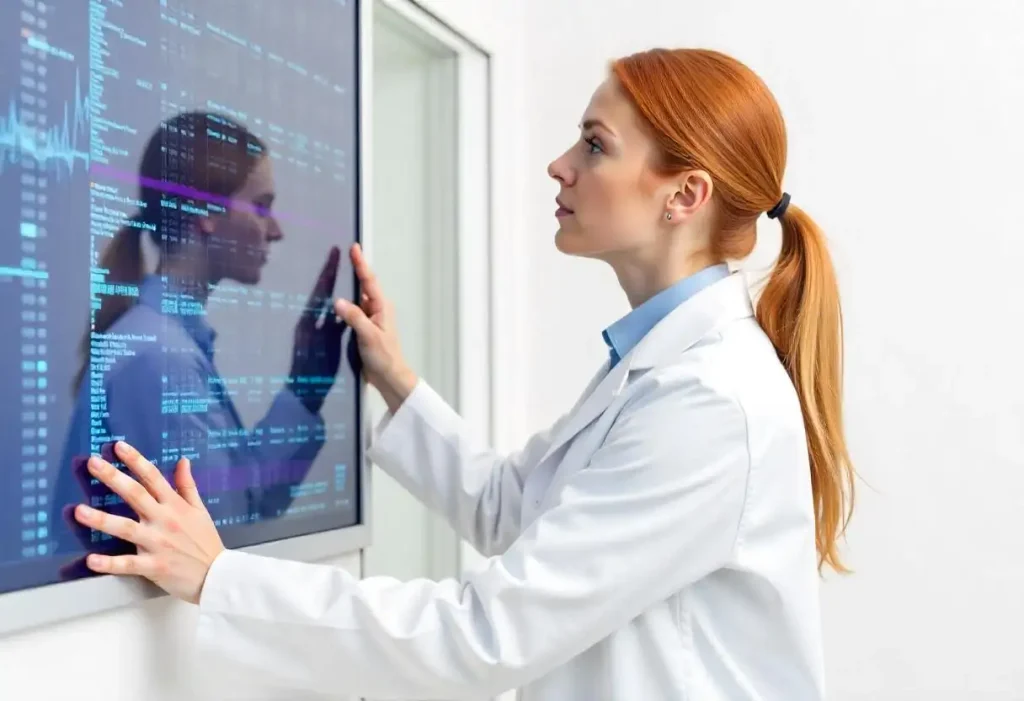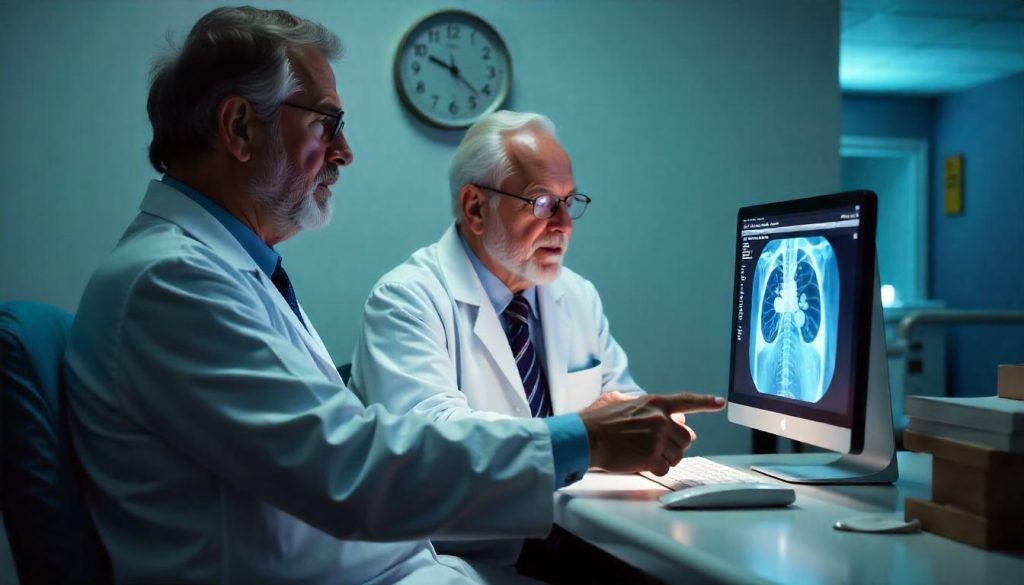Posted: 04/11/2024
Use of AI in Medicine
Reading Time: 3 minutes
Artificial Intelligence’s (AI) is something that is increasingly becoming part of everyday life, such as the rise of chatbots like ChatGPT. Another area where AI has amazing potential to revolutionise is in respect of healthcare. AI technologies have started to be integrated into medical practice, enhancing images to spot broken bones and cancer cells, and helping clinicians perform safer brain surgeries.
AI in medicine has been deemed “nearly twice as good” at grading the aggressiveness of a rare from of cancer over lab analysis. In a study run by the Royal Marsden Hospital and Institute of Cancer Research, AI was found to be 82% accurate in recognising detail invisible to the naked eye, compared to 44% accuracy by labs. The Centre are excited about AI’s potential to spot other cancers early, there already being huge promise shown in diagnosing breast cancers.

NHS Humber Health Partnership has announced an initiative named ‘Flow’, which is designed to streamline patient’s progress. AI software will be used in this process to prepare x-ray reports and read blood test results, all to speed up and prevent unnecessary hospital admissions. The software should help doctors provide more hands-on patient care.
As a medical negligence department, we too often see people who have been let down by the NHS due to human error and we see the introduction of AI as a step in the right direction to improving the service for patients and reducing cases of negligent care. However, AI cannot ever fully replace the input of humans and so human error will remain an unavoidable aspect of medical practice.
There are also some challenges and ethical considerations that come with the use of AI, particularly in healthcare settings. There are issues such as:
- Data privacy: AI in healthcare would be handling sensitive patient data, it is crucial that this data is kept private and secure to maintain patient trust.
- Potential bias in AI algorithms: these systems can inherit biases which may be present in the data they are trained on; this can lead to unequal treatment outcomes within different demographics.
- Integration with existing systems: to be able to incorporate AI tools into existing systems, significant investment would be required in training healthcare professionals.
AI in medicine is likely to become a more common occurrence, but it gives food for thought. What would happen if AI detected something such as cancer, but the clinician reviewing it disagrees? Addressing the potential for misdiagnosis or a delayed diagnosis is crucial. The use of AI also brings questions about informed consent and how decision making by AI may take away patient autonomy.

By improving diagnostics, personalising treatments, and increasing access to care, AI technologies have the potential to transform patient experiences and outcomes. However, careful consideration of ethical implications and challenges is vital to harness the full potential of AI in medicine while safeguarding patient rights. Ongoing research into AI ethics and regulatory frameworks will be essential to ensure that these technologies are implemented responsibly.
Though AI may improve patient outcomes, here at Williamsons we are aware that human error can bring about devastating consequences for individuals. If you have been affected by medical negligence, please contact the Clinical Negligence department on 01482 323697.
FRIENDLY, EFFICIENT LEGAL ADVICE
We’re ready to chat when you are
Drop us an email or give us a call for a no obligation chat to see if we can help.